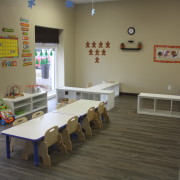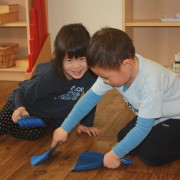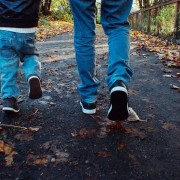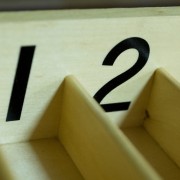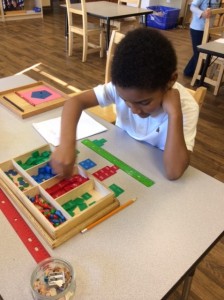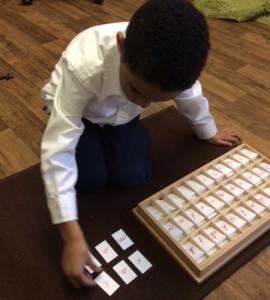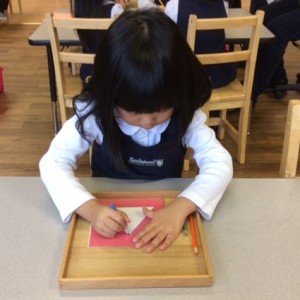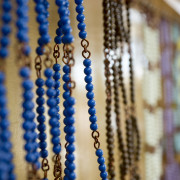Over the last few years, Kendalwood Montessori has gone through tremendous growth and development, both as a school and as an extended family. We are very proud of what we have accomplished together! Our daily efforts to provide an authentic Montessori education to our students inspire us as teachers and as parents. Over the last year, our guiding purpose has been further fuelled with the energy of our campus expansion, the addition of new students and families and increasing awareness of our school in Whitby and greater Durham Region. It has been an amazing time!
As our school has grown over the last year, we have also experienced a baby boom within our school community. At this time, we have 14 staff children attending Kendalwood from Infant through Renaissance, and there are several new additions on the way! We just love that our Montessori community is enriched with numerous parent and child relationships.
This growth and development extends to the career development of our faculty and staff. They are able to take on new opportunities and expand their Montessori practice through a wider range of experiences within the school as others take time off to be at home with their growing families. Continuity is important, so we always look for ways to ensure our students are able to expand their network of teachers who they trust and rely on in their growth and development. When new parents return to us following a Maternity leave, the Kendalwood community enjoys a happy reunion and often, a new friend joins our Infant program! New connections remain and familiar relationships are rekindled.
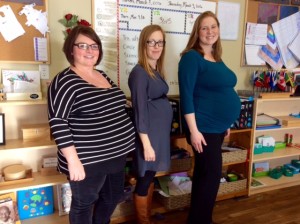
Kendalwood is expecting some new students!
Kendalwood Families
Janis Koenders, Principal – son in PreCasa and a new baby due this spring!
Elena Chavez, Toddler Directress – two sons in Casa & Lower Elementary
Holly Fernandez, Toddler Directress – daughter in PreCasa
Kelly Appleton, PreCasa Directress – daughter in Toddler
Rosie Borges, French Directress – son in Renaissance
Jane Dajka, Kitchen/Aftercare Support Staff – daughter in Renaissance
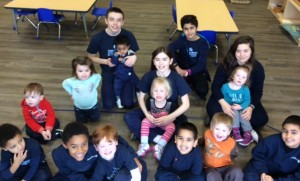
Kendalwood Staff Family
Stephanie Marchment, Casa Assistant & Co-ordinator – two sons in Toddler & Lower Elementary
Kate Scotland, Casa Directress – daughter in PreCasa and a new baby due this fall!
Terri Jennings, Casa Directress – two sons in Casa & Lower Elementary
Elisa Sammy, Upper Elementary Directress – son in Infant after recently returning from Maternity Leave
Christine Lauzon, on Maternity Leave – daughter in Toddler and currently awaiting the arrival of her second child due this month!
Kevin Kerr & Lisa Jobe, Ownership Team – son and daughter in Renaissance & Upper Elementary
At Kendalwood, we think of ourselves as a Montessori Community and bringing our own children to school with us is a true testament to our philosophy. We have shared our thoughts on the importance of a strong sense of community in Montessori education many times because we feel a supportive community helps students develop confidence as they stretch themselves in new ways, knowing that their Kendalwood family is there to provide guidance both academically and emotionally.
We are looking ahead with much enthusiasm to the joy of new babies and the further expansion to our school community, both as a family and as educators. Congratulations to everyone experiencing growth and development, in one form or another!
Kendalwood Montessori & Elementary School is Durham Region’s first fully accredited Montessori school. At Kendalwood, we believe that our job is to inspire children to become the best students they can be. With a curriculum that focuses on developing the intellect as well as nurturing self-esteem, academics are taught, curiosity is cultivated and respect is fostered. Our approach creates an environment where students flourish and develop a lifelong love of learning.
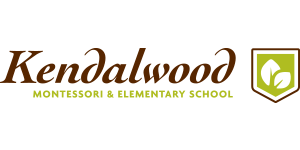
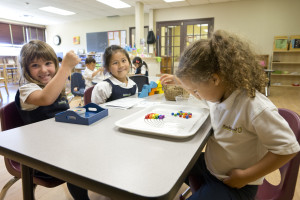

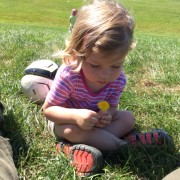 The summer season offers a wonderful opportunity to explore what Montessori education has to offer your child. Families from Ajax, Whitby and Oshawa are welcomed to join in our summer camp program for a taste of life at Kendalwood. Siblings, former students and new students and summer visitors often join us for the summer.
The summer season offers a wonderful opportunity to explore what Montessori education has to offer your child. Families from Ajax, Whitby and Oshawa are welcomed to join in our summer camp program for a taste of life at Kendalwood. Siblings, former students and new students and summer visitors often join us for the summer.

